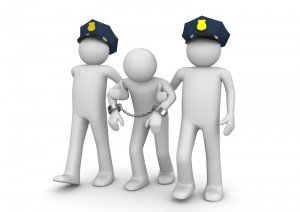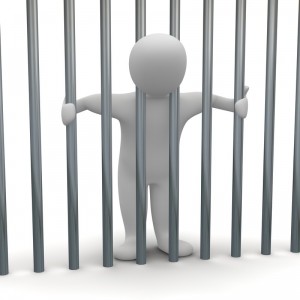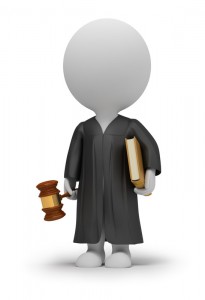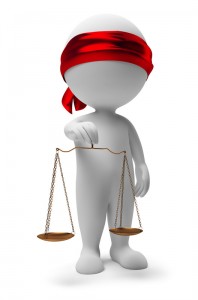“To the criminal defense lawyers of this nation: who fearlessly tread into hostile courtrooms, armed only with their briefcases and their native wit; who turn the Bill of Rights from an abstraction into a reality; who protect the rights and privileges that keep us a free people; who fearlessly fight against a federal government that has become the enemy of individual liberty; and who valiantly attempt to stem the steady erosion of our civil rights by a growing number of uncaring judges”
-Roy Black-
ROLE OF A DEFENCE LAWYER
When a lawyer defends a client, those who are unfamiliar with the novel role of the lawyer will say that the lawyer was not doing justice to the victim and his family by defending him. Some may go round to say that the lawyer was after money only and don’t care about the sufferings of the victim and his family will undergo if the accused is not convicted. Flipping the  other side of the coin, how many realize that there were many that had been convicted and sentenced to long jail terms or face death penalties due to wrong convictions caused by wrong assessment of evidence by judges?
other side of the coin, how many realize that there were many that had been convicted and sentenced to long jail terms or face death penalties due to wrong convictions caused by wrong assessment of evidence by judges?
In a Malaysian case in 1981 the accused was convicted for murder of a beauty queen, but, had the key witness not confessed in telling lies in court, the accused was sure to be hanged. This clearly shows that sometimes true to the saying that “Justice is blind!” Lies when told is always difficult to detect and at the same time, we should not discount the possibility of evidence been fabricated against the accused person or the accused been threatened to confess or admit to the crime charged when in actual fact, the accused had nothing to do with the crime.
HOW CAN LAWYERS DEFEND THE GUILTY?
 With all fairness to the lawyer, he is there to defend his client because he is there to protect “life or personal liberty” under Article 5(1) of the Federal Constitution which should not to be deprived of “save in accordance with law.” If the person is really guilty let evidence during trial be adduced in accordance with legal procedures to see that he is convicted “in accordance with the law”. After all, both the prosecution and the defence are represented by qualified and legally trained professionals in law.
With all fairness to the lawyer, he is there to defend his client because he is there to protect “life or personal liberty” under Article 5(1) of the Federal Constitution which should not to be deprived of “save in accordance with law.” If the person is really guilty let evidence during trial be adduced in accordance with legal procedures to see that he is convicted “in accordance with the law”. After all, both the prosecution and the defence are represented by qualified and legally trained professionals in law.
To lawyers, Article 5(1) of the Federal Constitution is one of the most important fundamental liberties guaranteed by the federal constitution and such liberties do not exist unless we have lawyers to protect and enforce them. As allowed by Article 5(3) of the Federal Constitution which allows the accused person to be defended by a legal practitioner of his choice, lawyers in this country have a novel role to turn abstract right into reality. Otherwise, such rights could not be enjoyed by citizens in this country if lawyers are restricted or could not be allowed to defend their clients charged with crimes. Lawyers that defend accused persons, paradoxically, are defending the interests of the community by upholding the rule of law and the presumption of innocence, that is, a person is innocent until proven guilty.
CHALLENGES & OBSTACLES
 Lawyers practising criminal law are always in the limelight because the challenges they face are most demanding among the legal profession. This is because there is no equality of arm between the defence lawyer and the State. The government has vast resources with the whole police force, trained investigators, medical and forensic experts, forensic and crime labs, plus the Attorney-General Chambers at its disposal.
Lawyers practising criminal law are always in the limelight because the challenges they face are most demanding among the legal profession. This is because there is no equality of arm between the defence lawyer and the State. The government has vast resources with the whole police force, trained investigators, medical and forensic experts, forensic and crime labs, plus the Attorney-General Chambers at its disposal.
This is because the principle of “equality of arms” is not a recognized principle in Malaysia. The defence is always at disadvantage because it has no access to prosecution evidence to compensate with the disparity of resources and to raise a roughly equal position and as such, to certain extend has put the accused person in a very difficult position to defend himself.
WHY SHOULD EVIDENCE BE LET KNOWN TO ACCUSED?
Evidence are collected by the police department as trustees rather than to collect evidence “for the prosecution” of the State, so that, the evidence collected should not in anyway belong to the prosecution, but, rather evidence collected as a form of public property and should, therefore, be accessible and open to both the prosecution and the defence as well. As long as the doctrine of “trusteeship” is not recognized in our law, there will remain the risk of “miscarriage of justice” cases caused by failure of the police to disclose to the defence material evidence that would assist the accused person to prove his innocence.
Recent changes in the law to allow the defence access to certain documents before trial is still of very little help to the defence because there is nothing to prevent the prosecution not to disclose them at all. This is because the defence may not know the existence of certain documents or information that could assist the defence during trial.


